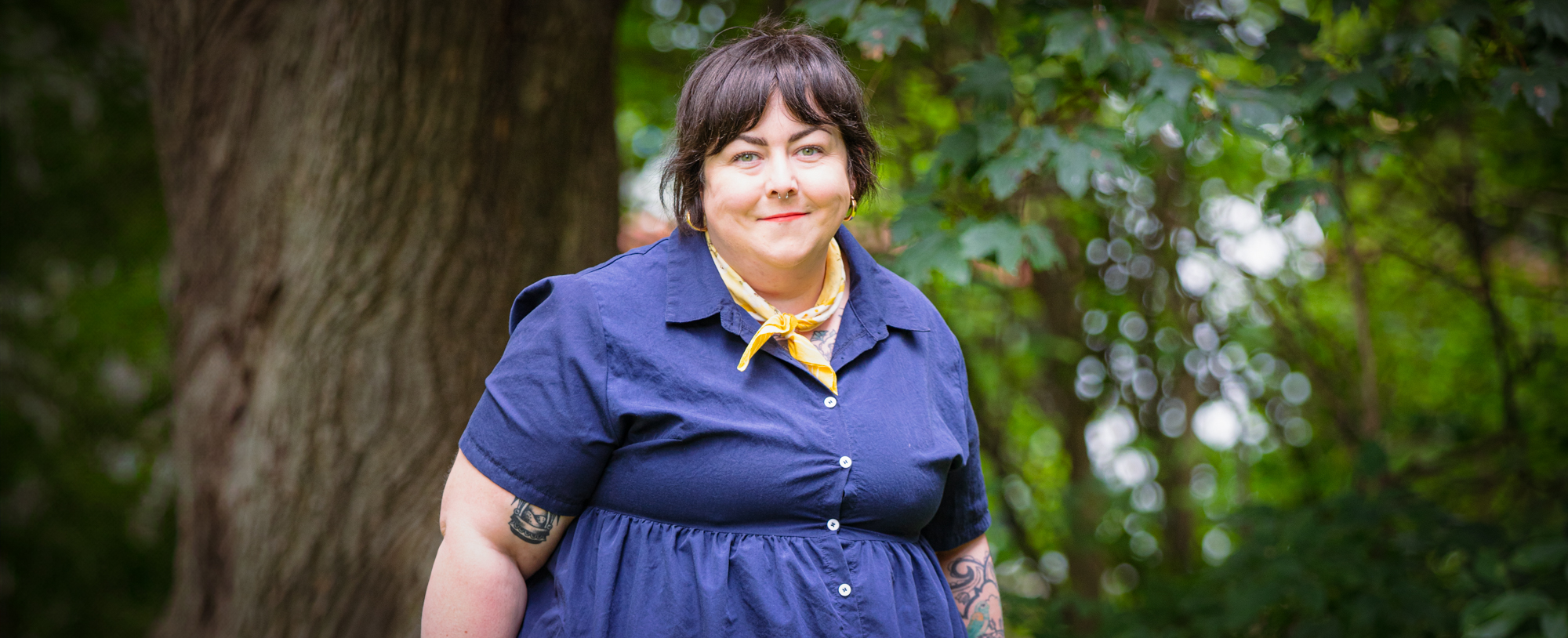Jennifer Jolie

Program
PhD, Social Practice and Transformational Change with a collaborative specialization in Sexualities, Genders and Bodies
Why did you choose to complete your graduate studies in your program at the University of Guelph?
When I was considering doing a PhD I spent a lot of time looking for an innovative and boundary-crossing program that is committed to interdisciplinary study and rooted in social justice praxis. Being a first-generation university graduate (BA, BEd, and MEd), I was apprehensive entering academia full-time as it is a place that is not accessible for most people; so I wanted to find a program that would support my personal values while allowing me to meet my professional goals. I chose the Social Practice and Transformational Change program at the University of Guelph because it is one of a kind. It is a community focused, collaborative, interdisciplinary program that focuses on social praxis and transformational change through community-based education.
A bit about your path...
Prior to choosing to pursue a PhD I spent over 12 years working for community organizations. I held different positions in alternative education capacities to build support and advocacy for marginalized community members in Sault Ste. Marie Ontario where I’m from. From engaging with conversations about safer injection education with individuals who use substances and inclusive safer sex practices with 2SLGBTQ+ youth and being invited to college and university classes to speak, I was mentored along the way by the community members I had to privilege to walk beside and learn with. This includes countless dedicated community leaders, most of whom are strong women. With this support and encouragement, I learned what my strengths are and found my passion for education and critical pedagogy.
I strongly believe that my work experience in my Northern Ontario hometown has been paramount to my success in the PhD program so far. It taught me so many important skills like how to manage my time, be resourceful and persistent, the importance of community and collaboration and to lead with and open-mind, kindness, and gratitude.
A bit about the work you are doing here...
As student and someone who is hopeful for a future in academia I often reflect on why I am engaging with research and knowledge creation, because I think it’s an important way of reflecting on how power operates in academia. I chose to pursue post-secondary education because it is a way that I am able to produce work that reveals ways that people are marginalized and oppressed systemically so that they can be understood and challenged effectively.
My research exists at the meeting point of fat studies and fat activism, critical disability studies, feminism, critical pedagogy to understand how marginalized bodies experience oppression.
How do you think your research can potentially improve life?
I hope to do research that contributes to understanding the experiences of individuals in marginalized embodiments (fat/disabled/queer), to contribute to critical pedagogy and education strategies that disrupt these narratives toward more socially just outcomes.
What's it like to work with your advisor?
I am very lucky to have two very and caring supportive advisors, who provide me with consistent support and encouragement. As leaders in their respective fields, they have each in their own unique way been both the most rich resources and biggest supports during my time at the U of G.
What do you plan to do after graduation? How has U of G helped you reach that goal?
I hope to work in academia. I dream of being able to continue with research and have the opportunity to teach. In my program I have had lots of valuable opportunities to lead seminars and take up positions as both a graduate research assistant and teaching assistant. This has provided me with a range of experience toward my future goals.
Tips for grad students new to U of G
The librarians and resources the library has to offer are amazing. Also, the grad accountability group and writing specialists have been valuable supports.
Briefly describe what it is like to be a graduate student at Guelph
The classes are very small in size which allows them to feel like a community of learners.
What do you like best about U of G campus and living in the City of Guelph ?
I really love how green the campus is. There is a lot of open space to find yourself a quiet spot to read.
Guelph is very friendly and has a small-town feel. There are lots of really cool events like craft nights, local makers markets and live music events that pop up.